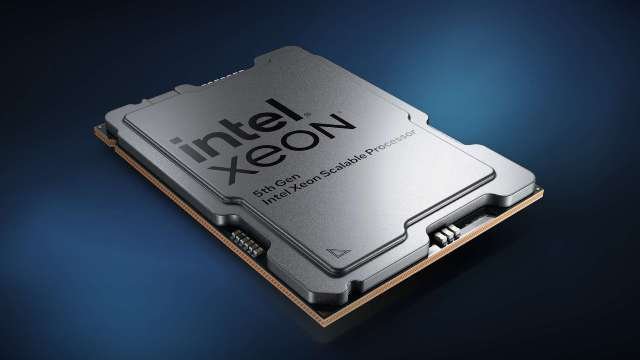Intel Corporation, a global technology leader, made groundbreaking announcements at the Intel Innovation 2023 event, focusing on the widespread integration of artificial intelligence (AI) capabilities across various domains, firmly positioning AI as a driving force in the technology landscape.
 Intel confirmed the steadfast progress of its five-nodes-in-four-years process technology plan, reiterating its commitment to innovation. The event featured the demonstration of the world’s inaugural multi-chiplet package utilizing the Universal Chiplet Interconnect Express (UCIe) interconnects, paving the way for a new era in chiplet collaboration and design.
Intel confirmed the steadfast progress of its five-nodes-in-four-years process technology plan, reiterating its commitment to innovation. The event featured the demonstration of the world’s inaugural multi-chiplet package utilizing the Universal Chiplet Interconnect Express (UCIe) interconnects, paving the way for a new era in chiplet collaboration and design.
The event also shed light on the next-generation Intel Xeon processors, unveiling substantial advancements in power efficiency and performance, including a remarkable E-core processor boasting 288 cores. The highly anticipated 5th Gen Intel Xeon processors are set to be launched on December 14, promising a transformative impact in the realm of processing power and computational capabilities.
Intel introduced the AI PC with the launch of Intel Core Ultra processors, slated for December 14. These processors will feature Intel’s first integrated neural processing unit, providing power-efficient AI acceleration and localized inference on personal computers.
Additionally, Intel showcased plans for a formidable AI supercomputer, leveraging Intel Xeon processors and Intel Gaudi2 AI hardware accelerators. The Stability AI initiative has been revealed as the anchor customer for this significant development, signifying the growing traction of AI technologies in large-scale computational applications.
In the spirit of empowering developers, Intel unveiled the general availability of the Intel Developer Cloud, a crucial platform for building and testing high-performance applications like AI. The cloud platform is already in active use by customers, emphasizing its immediate utility and relevance in the development ecosystem.
Intel CEO Pat Gelsinger emphasized the pivotal role of AI in driving what he termed the “Siliconomy,” an expanding economy fueled by the convergence of silicon and software. Today, silicon fuels an industry valued at $574 billion, ultimately underpinning a global tech economy approaching nearly $8 trillion.
In terms of technological advancement, Intel’s five-nodes-in-four-years process development program remains on track. Intel 7 is already in high-volume manufacturing, Intel 4 is manufacturing-ready, and Intel 3 is on schedule for the end of this year.
Gelsinger also provided a glimpse into the future, showcasing an Intel 20A wafer featuring the first test chips for Intel’s Arrow Lake processor, slated for the client computing market in 2024. Intel 20A will incorporate PowerVia, Intel’s backside power delivery technology, and the innovative RibbonFET transistor design, making it a significant milestone in Intel’s processor evolution. The Intel 18A node, leveraging similar advancements, is anticipated to be manufacturing-ready in the second half of 2024.
Intel continues to uphold Moore’s Law by leveraging novel materials and packaging technologies, such as glass substrates, a recent breakthrough that allows for the continued scaling of transistors on a package. This innovation is vital for meeting the growing demands of data-intensive, high-performance workloads like AI, ensuring Moore’s Law remains relevant well beyond 2030.
During the event, Intel showcased a test chip package built with Universal Chiplet Interconnect Express (UCIe), reflecting the next wave of Moore’s Law. The UCIe standard promotes chiplet collaboration, enabling chiplets from different vendors to integrate seamlessly and expand the horizons of diverse AI workloads. The demonstration exemplified the commitment of TSMC, Synopsys, and Intel Foundry Services to support an open standard-based chiplet ecosystem with UCIe.
Zhou Jingren, chief technology officer of Alibaba Cloud, explained how Alibaba applies 4th Gen Intel Xeon processors with built-in AI acceleration to “our generative AI and large language model, Alibaba Cloud’s Tongyi Foundation Models.” Intel’s technology, he said, results in “remarkable improvements in response times, averaging a 3x acceleration.”
The third annual Intel Innovation 2023 event marks a significant leap towards a future where AI permeates every facet of technology, promising accelerated innovation and transformation across industries.
